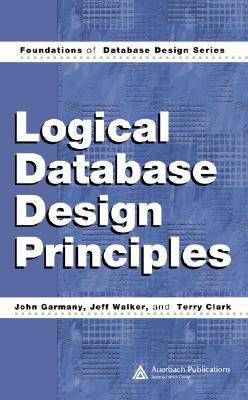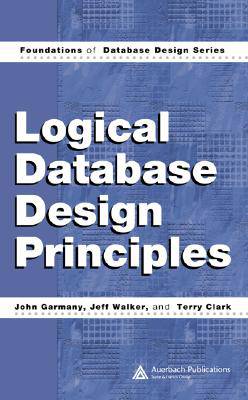
- Afhalen na 1 uur in een winkel met voorraad
- Gratis thuislevering in België vanaf € 30
- Ruim aanbod met 7 miljoen producten
- Afhalen na 1 uur in een winkel met voorraad
- Gratis thuislevering in België vanaf € 30
- Ruim aanbod met 7 miljoen producten
Zoeken
Omschrijving
Until now, almost all books on logical database design focused exclusively on relational design. However, modern database management systems have added powerful features that have driven a movement away from truly normalized database design. Logical Database Design Principles reflects these recent changes. The book begins by covering traditional logical design principles, followed by an analysis of the normalizing and modeling of data. It then examines designing for specific purposes, such as object-oriented databases, online transaction processing (OLTP), and data warehouses. As the text progresses, it moves from the purely logical into some physical design, as determined by how the features of modern databases are implemented. Because this is a logical-design book, the authors attempt to make the examples database-neutral. Because various vendors implement features in different ways, this volume sometimes offers examples from a specific database management system. When necessary, it highlights a specific application, clearly demonstrating the concept being discussed.
Specificaties
Betrokkenen
- Auteur(s):
- Uitgeverij:
Inhoud
- Aantal bladzijden:
- 200
- Taal:
- Engels
- Reeks:
Eigenschappen
- Productcode (EAN):
- 9780849318535
- Verschijningsdatum:
- 1/04/2005
- Uitvoering:
- Hardcover
- Formaat:
- Genaaid
- Afmetingen:
- 160 mm x 240 mm
- Gewicht:
- 408 g

Alleen bij Standaard Boekhandel
+ 297 punten op je klantenkaart van Standaard Boekhandel
Beoordelingen
We publiceren alleen reviews die voldoen aan de voorwaarden voor reviews. Bekijk onze voorwaarden voor reviews.











